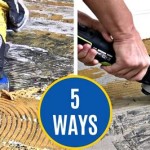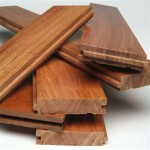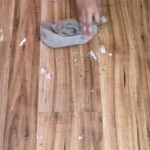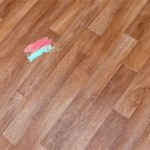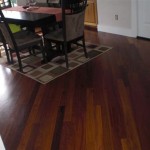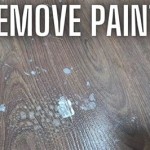What Type of Flooring Is Best for Water Damage?
Water damage can be a devastating event, wreaking havoc on homes and businesses alike. The impact extends beyond visible water stains and warped surfaces; it can lead to mold growth, structural damage, and even health concerns. When selecting flooring for areas prone to water exposure, prioritizing water resistance and easy maintenance is paramount. This article explores the most suitable flooring options for areas susceptible to water damage, highlighting their pros and cons to aid in informed decision-making.
1. Tile Flooring: A Durable and Elegant Option
Tile flooring, encompassing ceramic, porcelain, and natural stone, reigns supreme in areas susceptible to water damage. The inherent waterproof nature of these materials makes them ideal for kitchens, bathrooms, entryways, and even laundry rooms. Tile's resilience against moisture, spills, and stains ensures longevity and ease of maintenance.
Ceramic and porcelain tiles are affordable, diverse in style, and offer excellent durability. They resist scratches, dents, and wear, proving suitable for high-traffic areas. Natural stone, while more expensive, exudes elegance and adds a touch of sophistication to any space. However, it requires meticulous sealing to prevent water absorption and potential damage.
Despite its advantages, tile flooring isn't without limitations. Its hard surface can be cold and unforgiving, especially in colder climates. The inherent hardness also makes it prone to cracking under heavy objects or impacts. Additionally, tile installation, especially for intricate patterns, can be complex and labor-intensive, requiring professional expertise for optimal results.
2. Luxury Vinyl Tile (LVP) and Luxury Vinyl Plank (LVP): Cost-Effective and Versatile
Luxury vinyl flooring, encompassing both tile and plank formats, has gained immense popularity in recent years. Combining the elegance of natural materials with the practicality of vinyl, LVT and LVP provide a stylish and cost-effective solution for areas vulnerable to water damage.
These resilient floors are composed of multiple layers, including a waterproof core that prevents moisture from penetrating. Their water resistance makes them suitable for kitchens, bathrooms, basements, and even outdoor spaces. Additionally, LVT and LVP offer an impressive array of styles, mimicking natural materials like wood, stone, and tile.
Although their cost may be slightly higher than traditional vinyl flooring, LVT and LVP provide exceptional value for their durability and longevity. They're easier to install than tile, with some varieties offering click-and-lock installation systems that simplify the process. Nonetheless, LVT and LVP are less scratch-resistant than tile and can show wear over time, especially in high-traffic areas.
3. Engineered Hardwood: A Compromising Option for Water-Prone Areas
Engineered hardwood flooring, while not as water-resistant as tile or LVT/LVP, can be a viable option for areas with minimal water exposure. This type of flooring consists of a thin layer of real wood veneer bonded to a plywood core, offering a blend of natural beauty and durability.
The engineered construction makes it less susceptible to warping and cupping than solid hardwood, making it a suitable choice for areas with fluctuating humidity levels. However, its water resistance is limited to spills and splashes, making it unsuitable for areas subject to prolonged water exposure.
To enhance the water resistance of engineered hardwood, it's crucial to apply a sealant to the surface. Regular maintenance, including sweeping and mopping with a slightly damp cloth, is essential to prevent dirt and moisture buildup. While it offers a more natural look than tile or vinyl, engineered hardwood can be more expensive and requires careful maintenance to prevent damage.
4. Laminate Flooring: An Affordable Alternative for Limited Water Resistance
Laminate flooring provides an affordable and easy-to-install alternative to tile and engineered hardwood. Featuring a photographic image printed on a core layer, it imitates the look of various materials, including wood, tile, and stone. However, laminate flooring is not entirely waterproof and requires careful consideration for areas susceptible to water damage.
Most laminate flooring is rated for moisture resistance, making it suitable for areas with minimal water exposure, such as living rooms, bedrooms, and hallways. However, prolonged water exposure can lead to warping and swelling, compromising the floor's integrity.
Laminate floors are relatively easy to install and maintain, with click-and-lock installation systems simplifying the process. They are also relatively scratch and dent-resistant, making them suitable for high-traffic areas. However, their durability is limited, and they may show signs of wear over time. Additionally, laminate flooring is not as environmentally friendly as other options, as it contains formaldehyde and other chemicals.
Choosing the right flooring for areas prone to water damage requires careful consideration of individual needs and preferences. Balancing durability, style, and budget with water resistance is crucial. While tile and LVT/LVP options offer the best resilience against water exposure, each flooring type has its unique advantages and disadvantages. By understanding these factors, homeowners and businesses can select the flooring that best suits their specific requirements, ensuring a safe and aesthetically pleasing space for years to come.

Which Floor Should You Install After Water Damage Ozburn Hessey

Best Flooring To Withstand Water Damage In Columbia Sc Rytech Restoration Of The Midlands

Water Damage Restoration Rockwall Tx How Long Does Flooring Last

The Best Waterproof Flooring That Isn T Tile

How To Repair My Wood Floor San Diego Water Damage Cleanup

Hardwood Floor Water Damage Problems Restoration Flood Cleanup Certified Inc

What Are Best Basement Flooring Options After Flooding Water Damage Aba

4 Ways To Prevent Moisture Damage Under Luxury Vinyl Flooring Floor Trends Installation

Protect Hardwood Floors From Water Damage Useful Tips

How To Protect Your Floors From Costly Water Damage
See Also

